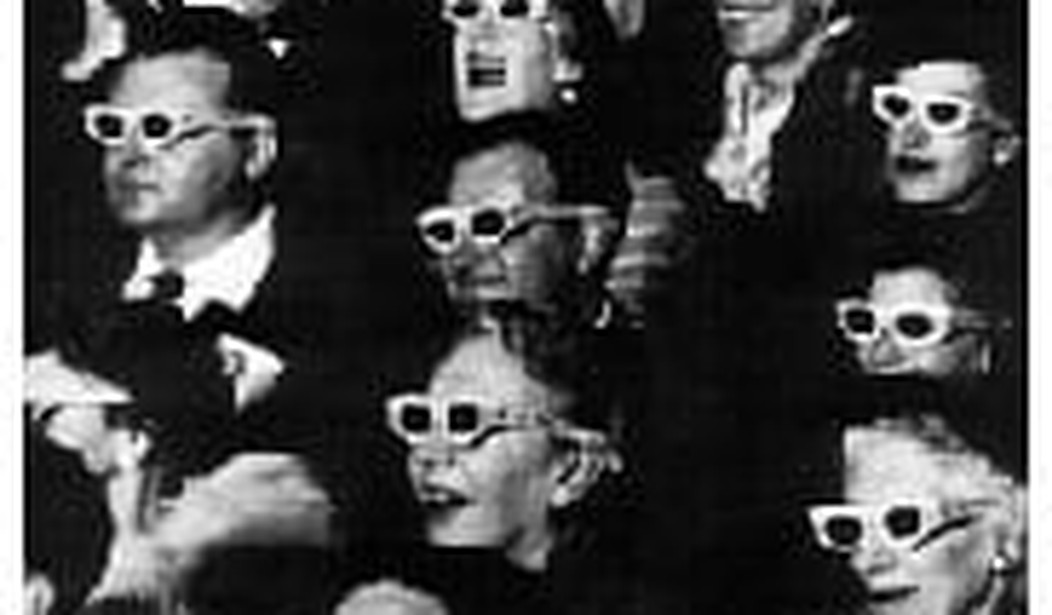“In statements, the AP insists Captain Hussein is real, insists he has been known to the AP and others for years, and insists the immolation episode occurred based on multiple eyewitnesses. But efforts by two governments, several news organizations, and bloggers have failed to produce such evidence or proof that there is a Captain Jamil Hussein. …. Nor has the AP told us who in the AP’s ranks has actually spoken with Captain Hussein. Nor has the AP quoted Captain Hussein once since the story of the disputed episode.”
Jordan then makes the point that the AP must now investigate whether Hussein does in fact exist — “… appoint an independent panel to determine the facts about the disputed report, to determine whether Iraqi Police Captain Jamil Hussein exists, and to share the panel’s full findings and recommendations with the public.” Though a panel might be useful, what really needs investigation is something Jordan himself described in detailing CNN’s previous relationship with Saddam Hussein: the corrupting influence of “access journalism” on the truthfulness of news.
Once upon a time the term “access journalism” was confined to the relatively genteel game of “scratch my back, I’ll scratch yours” world of Washington, DC. Christopher Hitchens wrote in Salon about the subtle way in which “access journalism” distorted the truth: “There’s also a new kind, peculiar to Washington, which might be termed ‘access’ or insider journalism. This method involves a trade-off between sources and methods, where anonymously-donated high-grade information will at least ensure that the source has his or her side of the story narrated.”
The dangers Hitchens described in Washington — that of the source subtly manipulating the journalist and the journalist tuning out his suspicions to maintain access — are as nothing compared to the brutal trade-offs that terrorists can force journalists to accept in Third World battlefields. They can force journalists to cover the story their way or no way at all. The media-savvy terrorist enemy can also offer the journalist confined by mortal danger to the four walls of a hotel a wide choice of fine stringers to do his journalistic legwork. And those stringers will supply him with stories from “Captain Jamil Hussein”. If the result of “access journalism” in Washington is the shaded truth; on terrorist battlefields its product is the reverse of the truth; the lie; the tale about things that never were from the Man Who Never Was.
One commenter at a Jay Rosen post at Press Think understood that the danger of “access journalism” lay in that it sometimes condemned the journalists into drinking from the same polluted well. The commenter, Lisa Williams, argued counterintuively that it is sometimes beneficial not to have (special) access because it forced the journalist to use his eyes and common sense in place of the “source”.
One of the things that the blogosphere has taught me , however, is that talent isn’t rare: distribution is rare. There are far more good writers than there are books on the shelves at the local big-box bookstore.
Since I read a lot of local newsblogs, one thing I note is that what seems to be the tool of choice for reporters — contacts and the phone — is the tool of last resort for many local newsbloggers. There’s a sort of diffidence, and in the best, this diffidence is combined with diligence, in local newsblogs. I think many people doing them feel that they don’t have the standing to assert themselves, to “bother people” by asking them questions.
One of the great advantages to being a reporter (during the very short time I did it) was the sense of an absolute carte blanche to call up anyone and just start asking questions, because you could say you were a Reporter from a Paper. “Hi, I’m some random person!” just doesn’t have the same effect, and not all local newsbloggers have developed the boldness to say, “Hi, this is X from XBlog, do you have a minute?”
As a result, local newsblogging is often the reverse of access journalism. It’s journalism by people with no access. Sometimes this has advantages. I have one contributor who likes to crunch numbers regarding school test scores. One of the things his crunching came up with was that the general narrative about why our schools were doing so poorly — namely, that it was Those Kids — was simply flat wrong. But what a reporter would have gotten out of an interview is the usual “our scores are being dragged down by X thing you believe because you’re already inclined to believe it.”
There a number of gems in this Jay Rosen post on newsblogging (Rosen calls blogs “little First Amendment machines”), but Lisa Williams hits upon the one attribute of newsblogging which gives terrorists seeking to control access to journalist “sources” in order to manipulate them the most problems: distribution.
Newsbloggers create their own distribution network of information, which though not as high-powered as the MSM’s runs through all the byways of the world. Trying to shut down hundreds or thousands of people with “little First Amendment machines” is a far more difficult task than keeping tabs on a relative handful of journalists confined by intimidation in a hotel.
And fact, it was Flopping Aces with his little blogging machine, and his little email machine, and not the internal checks and balances of the mighty AP, that inflicted this defeat upon the minders in Baghdad by pulling the stuffing out of their “Jamil Hussein”. But if the AP ever gets around to convening the independent panel suggested by Eason Jordan, they would do well to include this rhetorical challenge by Jay Rosen in the footnotes, where someone may notice it:
The people formerly known as the audience wish to inform media people of our existence, and of a shift in power that goes with the platform shift you’ve all heard about.
Think of passengers on your ship who got a boat of their own. The writing readers. The viewers who picked up a camera. The formerly atomized listeners who with modest effort can connect with each other and gain the means to speak- to the world, as it were.
Now we understand that met with ringing statements like these many media people want to cry out in the name of reason herself: If all would speak who shall be left to listen? Can you at least tell us that? The people formerly known as the audience do not believe this problem-too many speakers!-is our problem.
Not our problem, but Jamil Hussein’s.









Join the conversation as a VIP Member